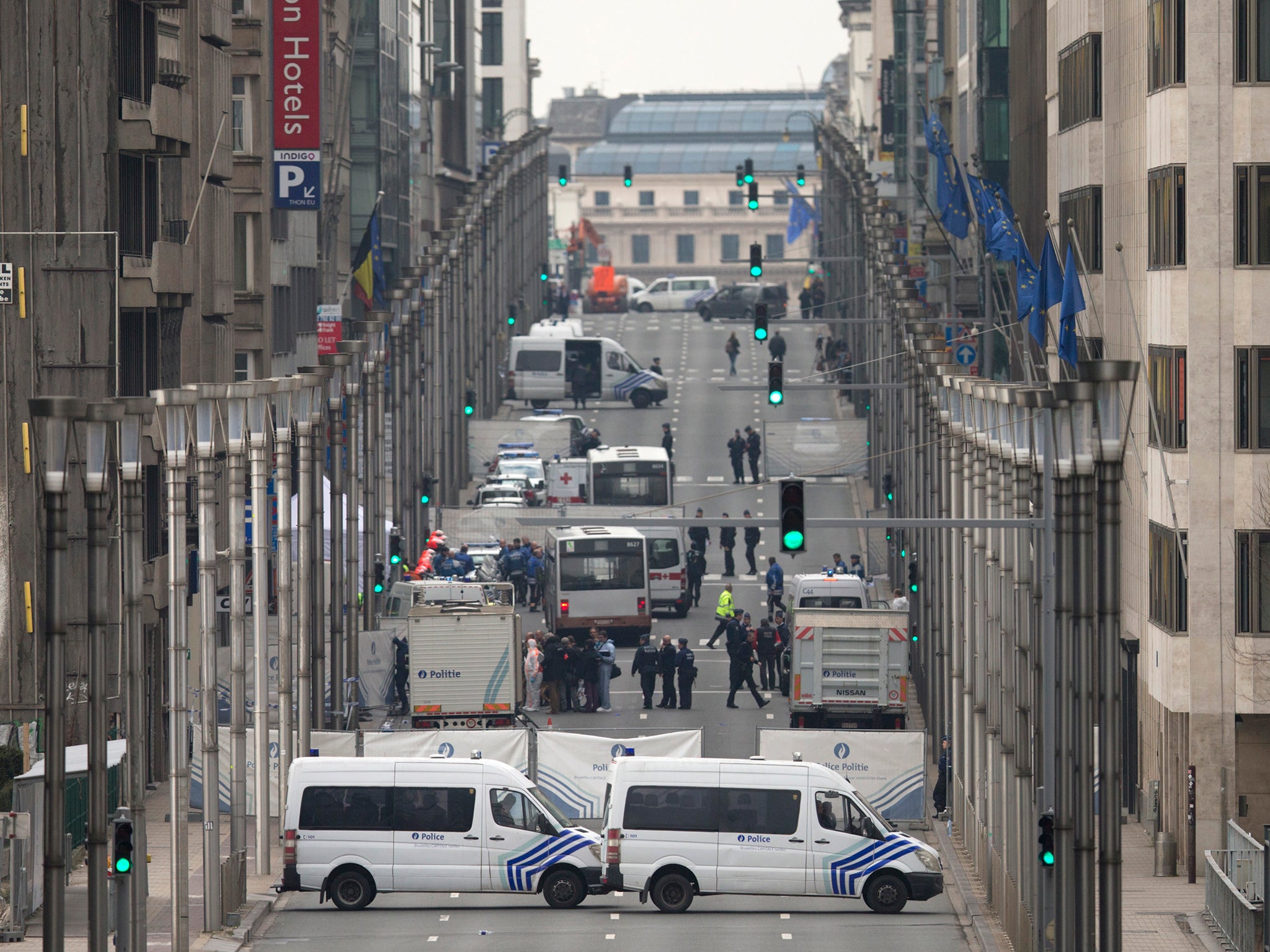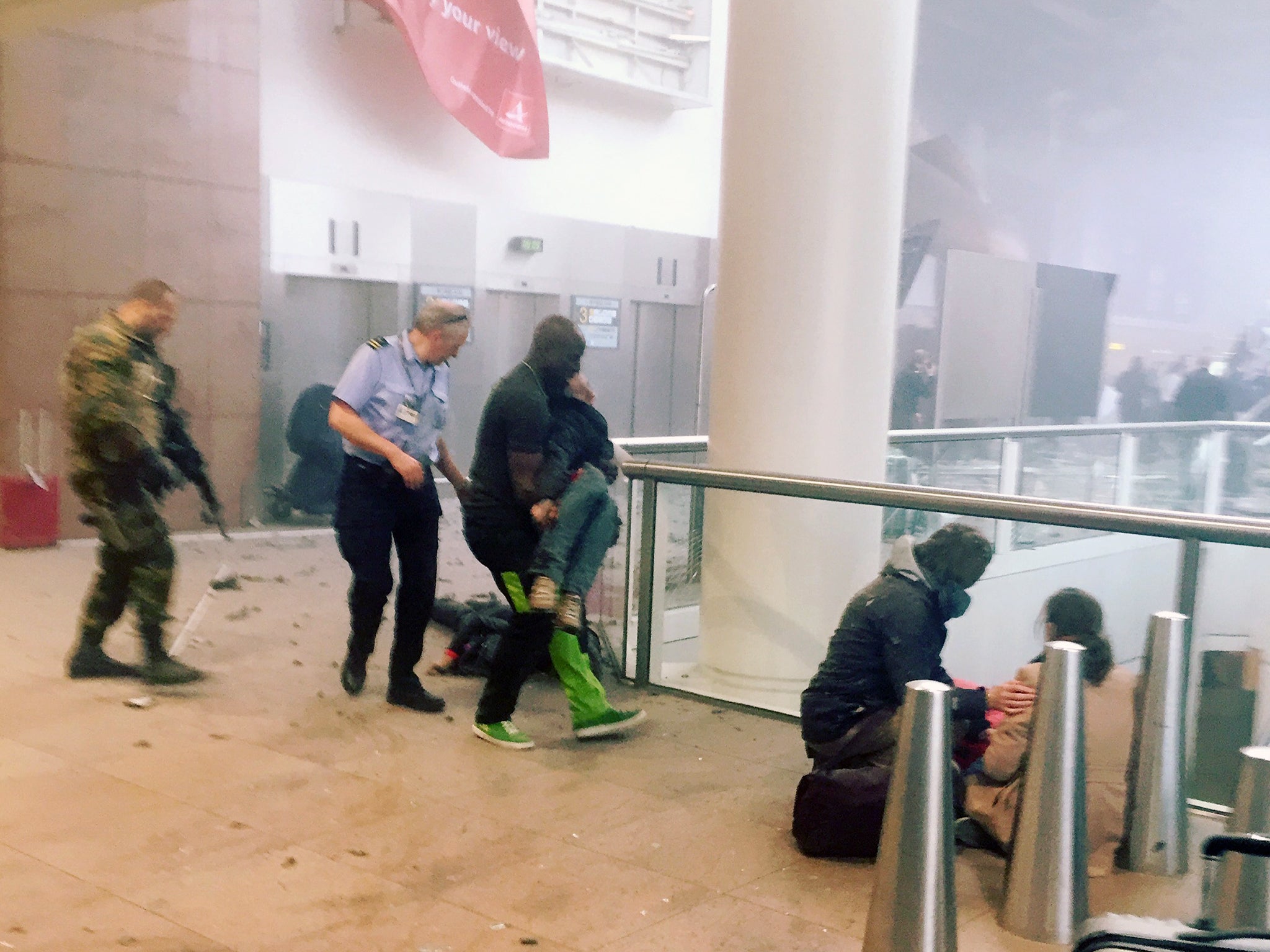Brussels attacks: Belgian authorities fear suspects could still be at large after Isis bombings at airport and on Metro
The terror alert in Belgium has been raised to its highest possible level as operations conitnue

Your support helps us to tell the story
From reproductive rights to climate change to Big Tech, The Independent is on the ground when the story is developing. Whether it's investigating the financials of Elon Musk's pro-Trump PAC or producing our latest documentary, 'The A Word', which shines a light on the American women fighting for reproductive rights, we know how important it is to parse out the facts from the messaging.
At such a critical moment in US history, we need reporters on the ground. Your donation allows us to keep sending journalists to speak to both sides of the story.
The Independent is trusted by Americans across the entire political spectrum. And unlike many other quality news outlets, we choose not to lock Americans out of our reporting and analysis with paywalls. We believe quality journalism should be available to everyone, paid for by those who can afford it.
Your support makes all the difference.Belgian authorities fear that suspects linked to a deadly wave of bombings in Brussels may still be at large as security operations continue along the country.
At least 34 people died in three explosions coming little over an hour apart at the city’s main airport and a Metro station on Tuesday morning.
At least one of the blasts was reported to be a suicide bombing but the fate of other suspected attackers was unclear.
In a statement claiming responsibility for the attacks, Isis claimed "explosive belts and devices" were used but did not specify the number of assailants.
A third suicide belt was destroyed in a controlled explosion at Brussels Airport on Tuesday afternoon, VTM News reported, while a Kalashnikov was found in the departures hall.
“We fear that people are still at large,” said Didier Reynders, the Belgian foreign minister. He did not give any further details.
The twin explosions near check-in desks at the airport came little over an hour before another explosion on a Metro train near EU buildings at Maalbeek station.
An American official told the Associated Press agency that a suitcase bomb was among those used at Brussels Airport, alongside at least one suicide vest, while the device used on the train was unclear.
The Kalashnikov was found in the air terminal, officials said, seemingly corroborating witness accounts of gunfire shortly before the first explosion.
The national terror alert has been raised to its maximum level of four across Belgium, sparking tightened security measures and raids.
The Tihange nuclear power station, 50 miles south-east of Brussels Airport, was partially evacuated as searches continued on Tuesday.
All non-essential staff were asked to leave the plant as part of increased precautions, operators Electrabel said.
Surveillance was being stepped up with added security measures at nuclear plants across Belgium, with vehicles being checked and police officers and soldiers sent for extra protection.

Investigators probing the Paris attacks had found video footage of a senior Belgian nuclear official at a key suspect's home during a search in February, the AFP news agency reported.
Police also destroyed a suspicious package in a controlled explosion at the Free University of Brussels (Vrije Universiteit Brussel).
Students and staff had been urged to stay inside at its Etterbeek campus in the aftermath of the attacks and the detonation was carried out at around 12.45pm (1.45pm local time).
There was no immediate claim of responsibility but the timing, coming days after the arrest of Paris attacks suspect Salah Abdeslam was considered significant.
As the death toll rose amid continuing rescue operations, supporters of the so-called Islamic State were championing the attacks on Twitter.

Dr Natasha Underhill, an expert on terrorism in the Middle East at Nottingham Trent University, said there was “little doubt” that the latest atrocity in Europe was linked to Isis or its affiliates.
“The likelihood of further attacks in Europe is now in very little doubt,” she added.
“The promotion of fear is one of the strongest assets that Islamic State possesses and it is sadly doing an excellent job in spreading this message across Europe.”
Abdeslam, the only surviving attacker from Isis’ massacres in Paris in November, had reportedly told investigators he was part of a cell planning further atrocities in Brussels after a large cache of weapons was found.
Security has been increased at airports and transport hubs across Europe as investigations continue.
Additional reporting by AP
Join our commenting forum
Join thought-provoking conversations, follow other Independent readers and see their replies
Comments